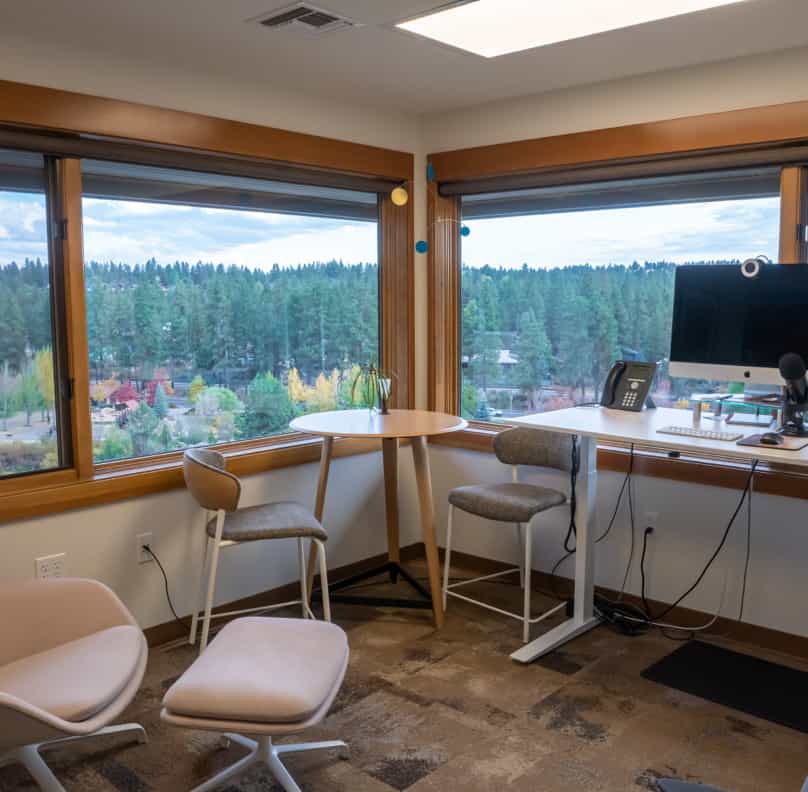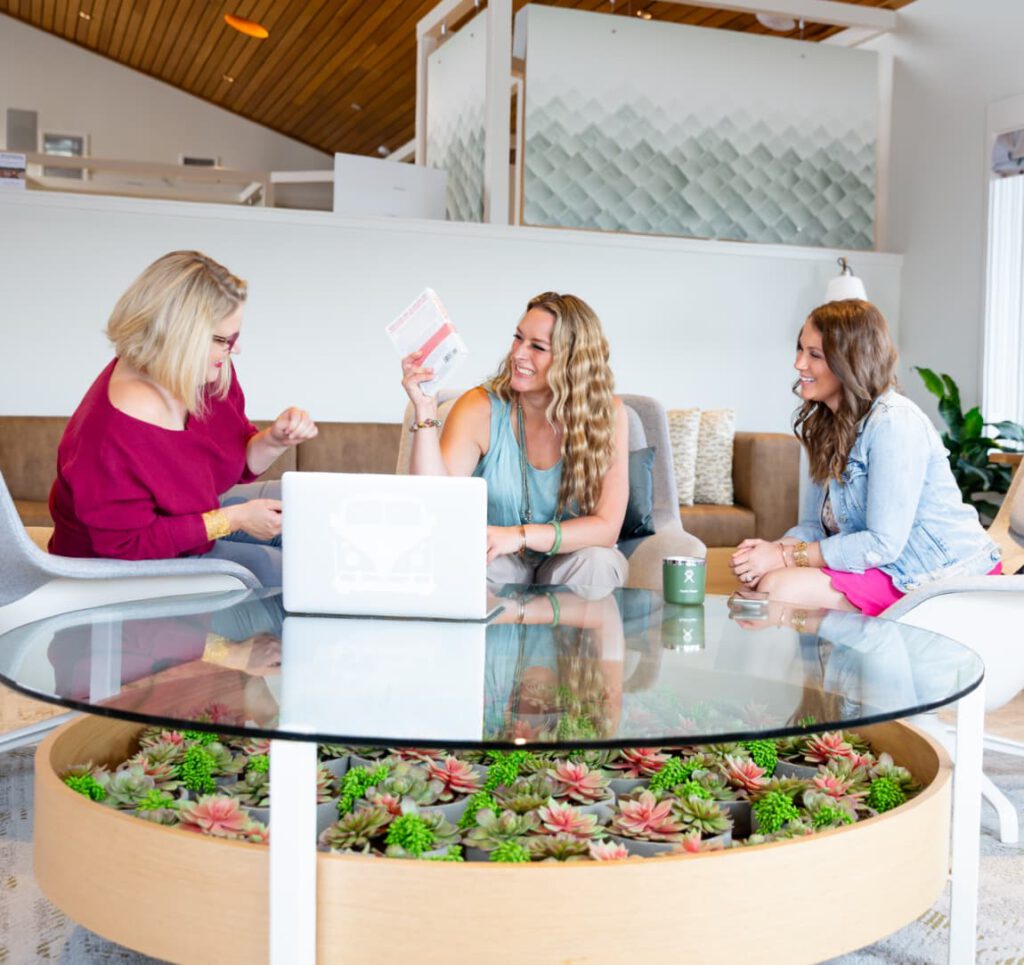“I’ve thought about opening a co-working space like this…” is one of the most frequent comments I’ve heard throughout the last year. If so many other women have thought about it, what kept them from being able to do it? As many of you know, being an entrepreneur is hard, and there are countless obstacles to overcome along the journey. I didn’t grow up in a family of entrepreneurs, so the sheer number of obstacles has been somewhat surprising to me, and I simply wouldn’t have continued without the strong support of my husband. If you haven’t had a close-up view of entrepreneurship and you run into a challenge or two, you might think it’s a sign that you should quit. To the contrary, I’ve learned that obstacles require me to dig more deeply, to recommit to my why, and to help refine my mission and business plan for the better. So, in an effort to be more transparent about the realities of entrepreneurship, I wanted to share some of the obstacles we’ve faced trying to open The Haven. This is not a request for sympathy! This is a request for all of us to more authentically and honestly talk about the realities of work and life so that we can better support each other through the good and bad times.
1. Is it the right time? Since having a conversation with Libby Unger several years ago I’ve been dreaming of opening a space like The Haven. But when on earth was I going to have the time or resources to do it? Scott and I don’t have any generational wealth and have saved a modest but insufficient retirement savings. There is no way I could stop working and spend our limited savings on getting something like this up and running. But early in 2018, a possible job transition prompted me to think broadly about what might come next. I decided to start down the path of constructing a business plan for a women-focused coworking space, and go from there – without overthinking the whole plan at that point. There is never a perfect time. And in fact, it turned out not to be great timing, with a second baby, a new full-time job and school board commitments. But if not now, when? I knew I would regret it if I didn’t at least pursue it, so I took the critical first step of just starting.
2. Wait, commercial landlords can discriminate? While going through a business planning boot-camp, Scott and I set out to explore possible locations. Besides the warehouse we lease from a friend for Cascade Relays, this was our first experience with commercial real estate. We looked at a number of possible locations, from warehouses to old houses to office buildings. When we walked into the 2nd floor of 1001 SW Disk Drive, we looked at each other and said “this is it.” I assumed that if we had good credit and the necessary deposit amount that we would be able to lease the space. But after starting negotiations with the landlord, I came to understand the harsh reality: unlike residential real estate, which is covered by the Fair Housing Act^, commercial landlords have full discretion over who they decide to rent to. It turns out that I am a risky tenant due to my new and unproven business model. Despite the fact that we already own a successful local business, we have excellent credit, I have an MBA and had written a stellar business plan based on a growing sector, it quickly became apparent that the landlord was not going to move forward with me and my business. We were devastated. Fortunately, we have a substantial network in Bend and reached out to a friend who knows the landlord. He wrote a letter to the owner of the property and we found out the owner hadn’t even heard of me or my business plan – it had never made it past the brokers. But, thanks to our friend, the owner personally reviewed our business plan and then instructed his brokers and team to try to make it work.* What would have happened if I didn’t have access to that social capital?
3. Wow, we need a lot more start-up funding. By the end of the business planning boot-camp, I had a budget that called for ~$100,000 in start-up capital plus ~$100,000 in working capital to get through the first months of losses until membership reached sustainability. We figured we could boot-strap that with a small business loan and credit cards. But you guessed it – small business loans aren’t for start-ups, because there is no revenue yet. Luckily, we have a friend in the business who recommended getting a home equity loan instead. We are privileged to own our home and to have purchased it at the bottom of the last recession, so we have a good amount of equity we can use. If we weren’t homeowners, this would not have been possible. My husband, who has a higher risk tolerance than I do, pointed out that we’re essentially “playing with house money” due to when we purchased our home. Still, there is a real risk that we could lose our home if The Haven isn’t successful, and that is scary.
Then, reality hit. First, the landlord required we put $85,000 in an account to be held to pay our rent, in case our business fails. That means we had to come up with $85,000 to just sit there, that we can’t even use for the project. Then, once we started the design process and decided to make this a premier coworking space, our pre-opening budget increased to $650,000. With this new budget reality, we had to decide “does this still make sense to do?”.
At this point, I would not have been strong enough to move forward without full and enthusiastic support from my husband Scott. We both know in our hearts The Haven is going to be a huge success, but you can’t risk your house and life savings without the full support of your partner. I’m so grateful to have a partner who supports our dreams, even when they are risky.
I also wouldn’t have moved forward without the strong support of our board and team, and especially our investors (which I’ll write about in a future blog). Everyone on our team has made a real commitment of time and resources to bring The Haven to life. The fact that other people are willing to commit their own time and money to this venture was a sign that it has real legs.
——–
4. Waiting. And waiting. And more waiting for a construction permit. We figured out how to raise $835,000 (another future blog post) and started the design process. We moved quickly in order to get our permits submitted, knowing they would take 10-12 weeks to receive. During this time, from October to November, we designed all of the details, started ordering furniture and equipment, built a website and started selling memberships. We expected to have our permit and start construction before Christmas. Construction is expected to take 10-12 weeks, so we planned to open April 1st.
Christmas came and went. And we waited. And waited. When we finally heard back from the city, the first issue was our gender-neutral bathroom. We had designed a beautiful gender-neutral bathroom that we believe will be the norm in the future. All of the toilet stalls are floor-to-ceiling and fully private. The showers are completely enclosed and private. The sinks are in a shared bank. There are so many reasons to have gender-neutral bathrooms. (As a mother of young toddlers, the ability to go into a bathroom with my partner to change diapers together is top-of-mind.) Unfortunately, the City of Bend decided to deny our design, and after trying to advocate for it, we decided we had to move forward to get our permit and begin construction, and then continue advocating for it later.
We thought we were in the clear, but unfortunately there was more bad news to come. As with many laws and regulations, building occupancy codes haven’t caught up to modern times. “Coworking” wasn’t a thing when the building code was last updated, and the City of Bend would only permit us for a fraction of the occupancy we need to make our business plan work.
We have spent the last few months working with the City of Bend and advocating for them to apply the future code (coming down from the State) that does a slightly better job of accommodating coworking spaces, which require more density than a normal office space. It ultimately took 5 1/2 months to receive our permit, significantly delaying our open date. I cannot begin to describe how frustrating it was to sit and wait, with money flying out the door and limited revenue coming in. We now expect to open in July, barring any additional delays.
——–
These are just four of the obstacles we’ve overcome in the last 9 months as we’ve worked to make The Haven a reality. Any one of them, or many others, could have quickly brought this dream to a halt. It is only because we are privileged, well connected and tenacious that we have been able to push through to bring The Haven to our community. No matter how good the idea, an entrepreneur without generational wealth, a large social network, or the privilege to take risks would have an extremely difficult time realizing their personal vision for a business. After this experience I am even more in awe of those who have persevered to make their dreams come true, and look forward to supporting other entrepreneurs and thinking about the policies and structures that need to change to help more great ideas succeed.
My best,
Carrie
p.s. Read The Haven Birth Story, Part 1 here
————–
^I realize discrimination in residential real estate exists, but legally it is not supposed to. A different issue for another blog post.
*Our landlord has been amazing to work with, and this is nothing personal, I’m sure it is just standard business practice in this industry.


